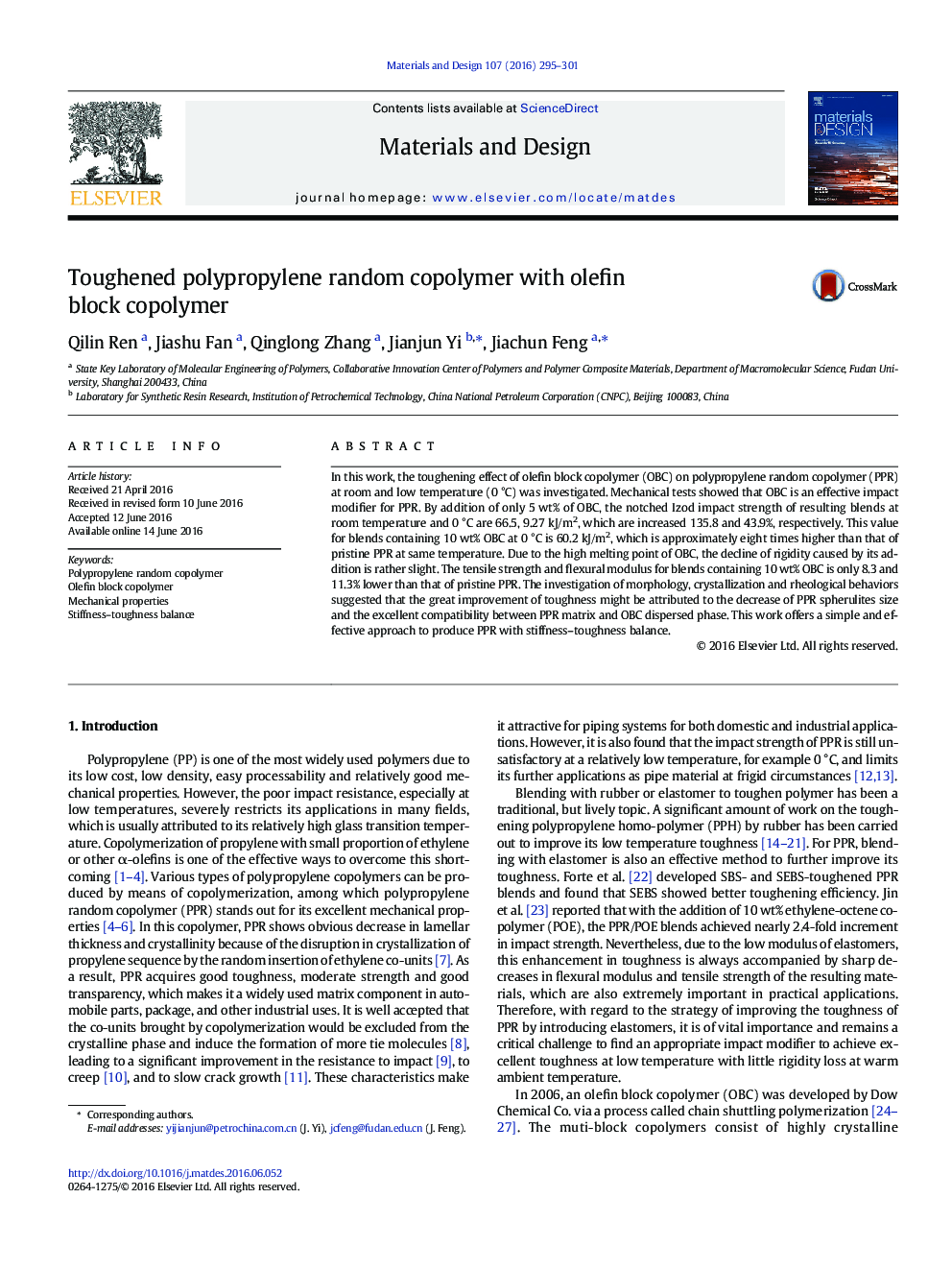| Article ID | Journal | Published Year | Pages | File Type |
|---|---|---|---|---|
| 827781 | Materials & Design | 2016 | 7 Pages |
•The toughening effect of olefin block copolymer on polypropylene random (PPR) copolymer was investigated.•The addition of low amount of the copolymer induced significant impact toughness improvement but slight rigidity decline.•The great toughness improvement may be related to the excellent compatibility and decrease of spherulites size.•This work provides a simple and effective approach to produce PPR with stiffness–toughness balance.
In this work, the toughening effect of olefin block copolymer (OBC) on polypropylene random copolymer (PPR) at room and low temperature (0 °C) was investigated. Mechanical tests showed that OBC is an effective impact modifier for PPR. By addition of only 5 wt% of OBC, the notched Izod impact strength of resulting blends at room temperature and 0 °C are 66.5, 9.27 kJ/m2, which are increased 135.8 and 43.9%, respectively. This value for blends containing 10 wt% OBC at 0 °C is 60.2 kJ/m2, which is approximately eight times higher than that of pristine PPR at same temperature. Due to the high melting point of OBC, the decline of rigidity caused by its addition is rather slight. The tensile strength and flexural modulus for blends containing 10 wt% OBC is only 8.3 and 11.3% lower than that of pristine PPR. The investigation of morphology, crystallization and rheological behaviors suggested that the great improvement of toughness might be attributed to the decrease of PPR spherulites size and the excellent compatibility between PPR matrix and OBC dispersed phase. This work offers a simple and effective approach to produce PPR with stiffness–toughness balance.
Graphical abstractFigure optionsDownload full-size imageDownload as PowerPoint slide
